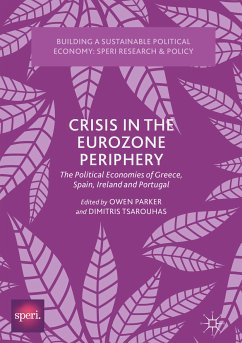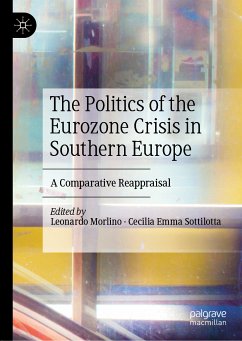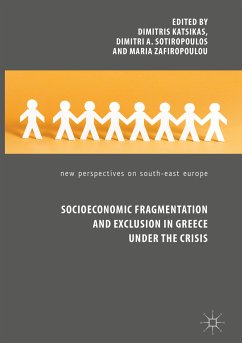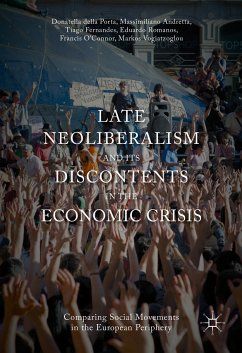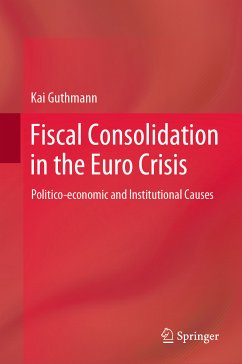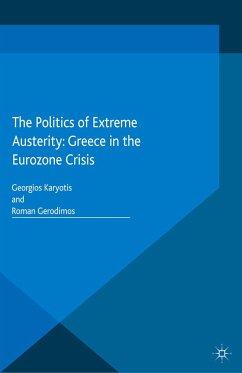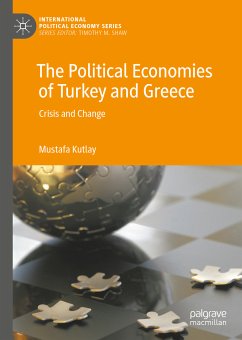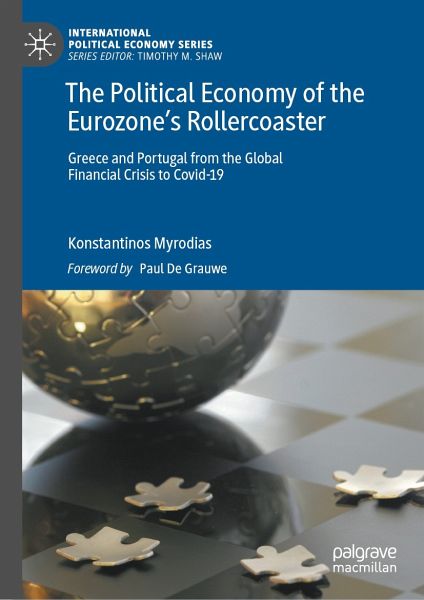
The Political Economy of the Eurozone's Rollercoaster (eBook, PDF)
Greece and Portugal from the Global Financial Crisis to Covid-19
Versandkostenfrei!
Sofort per Download lieferbar
96,95 €
inkl. MwSt.
Weitere Ausgaben:

PAYBACK Punkte
48 °P sammeln!
Global crises throughout history have shaken humanity and transformed economies and societies. The Eurozone faced two such crises soon after its foundation. This book brings new insights regarding the Eurozone's response to the Global Financial Crisis in 2008 and the Covid-19 pandemic and its effectiveness in dealing with the macroeconomic imbalances in Europe. Is the Eurozone more resilient now? This book is an indispensable addition to the literature on the recent global crises and the Eurozone for both academics and policymakers who are eager to delve deeper into these vital questions.
Global crises throughout history have shaken humanity and transformed economies and societies. The Eurozone faced two such crises soon after its foundation. This book brings new insights regarding the Eurozone's response to the Global Financial Crisis in 2008 and the Covid-19 pandemic and its effectiveness in dealing with the macroeconomic imbalances in Europe. Is the Eurozone more resilient now? This book is an indispensable addition to the literature on the recent global crises and the Eurozone for both academics and policymakers who are eager to delve deeper into these vital questions.
Dieser Download kann aus rechtlichen Gründen nur mit Rechnungsadresse in A, B, BG, CY, CZ, D, DK, EW, E, FIN, F, GR, HR, H, IRL, I, LT, L, LR, M, NL, PL, P, R, S, SLO, SK ausgeliefert werden.



